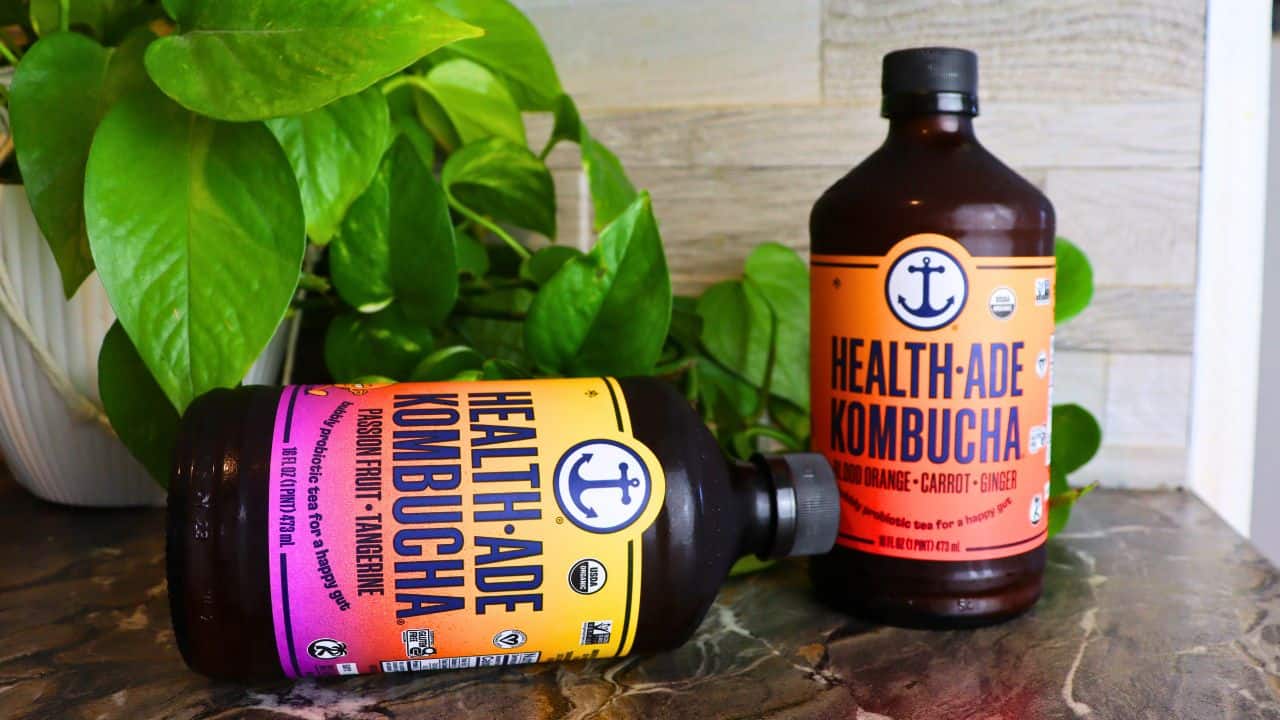Most of us would prefer to buy from brands that align with our eco-friendly and ethical values.
But not every brand’s claims are as green as they make out. This is called greenwashing.
So, how can you tell the difference between misleading and genuine claims?
Read on as the pebble team dive into:
- What greenwashing really means
- How it impacts the environment and genuinely sustainable businesses
- Ways you can avoid greenwashing as a consumer
Here’s what you need to know.
Quick links to what you need to know about greenwashing
- What is greenwashing
- Why is greenwashing a problem
- Common greenwashing examples
- How organisations are tackling greenwashing
- How you can avoid greenwashing

What is greenwashing?
With the growing concern about the environment and treatment of people in making and disposing of products, consumers quite rightly want to shop in line with their values.
This means brands adopting sustainable practices to stay in their good books.
However, with scant regulations to enforce them, businesses can get away with giving consumers the illusion that they care when in reality their actions don’t match up to their claims.
Businesses can make unsubstantiated claims about their sustainability initiatives to distract consumers from their unsustainable actions.
This practice is known as ‘greenwashing’, a term coined by environmental activist Jay Westerveld in 1986.

Why is greenwashing a problem?
Other than being a misleading marketing ploy, greenwashing can trick consumers into unintentionally being unsustainable.
If you buy products from a business that falsely claims it’s eco-friendly, your good intentions could actually be harming the planet. And troubling it’s getting more complex to weed out the genuine claims from the greenwashing as terms like ‘sustainable’ and ‘biodegradable’ are open to generous interpretation.
Greenwashing ultimately harms a business’s reputation.
This means some legitimately eco-friendly businesses might not want to promote their sustainable practices out of fear of being accused or being judged as not sustainable enough.
So as a by-product of greenwashing, genuine eco-initiatives also might not get the recognition they deserve.

Common greenwashing examples
The issue of organic
In the skincare industry, brands are able to call their products ‘organic’ if just 1% of the ingredients are. They don’t even need to be certified to label the product as such.
Plus the rest of the ingredients in the product could actually harm you and come from unsustainable sources.
Read The Clean Beauty Movement: What Is It And Why Is It Controversial?

The compostable vs biodegradable debate
An increasing number of brands are labelling their packaging as either ‘compostable’ or ‘biodegradable’ – particularly in association with plastics.
However, these terms aren’t always as eco-friendly as we’re led to believe.
Biodegradable refers to a biological process in which something is naturally broken down without human intervention.
This is usually in the form of bacteria or fungi and requires a certain number of environmental factors.
The definition of biodegradation doesn’t include the time it takes for the material to degrade.
This means biodegradable products that end up in landfill could sit around for a lot longer than we think, but still technically ‘biodegrade’ over centuries.
On the other hand, composting refers to accelerated degradation in optimal conditions set by human intervention.
This can be better for the environment in theory as we have more control.
However, for this to be successful, most compostable materials like bioplastics need to be sent to an industrial composting facility, of which there aren’t many the UK and some of them cannot handle the recent innovation of bioplastics at all.
These ‘compostable’ materials won’t break down for centuries otherwise, so they can have just as big an impact as non-bioplastics, meanwhile you’ve spent possibly more money on a product under the illusion of it being better for the planet.
Plus, bioplastics can be seen as a magic bullet to solve the plastic pollution crisis when the truth is drastic reduction is key.
Bioplastics are still plastic and still break down into micro plastics.
What Are Microplastics And Why Are They Harmful?

How organisations are tackling greenwashing
Greenwashing isn’t just harmful to people, the environment and even animal welfare. It’s also a case of being deliberately misleading marketing.
Sustainability sells but it’s hardly regulated and there are very few repercussions. Some organisations are working to change this.
Here are a few of them below:
CMA’s Green Claims Code
The Competition and Markets Authority (CMA) has published a new Green Claims Code to help businesses communicate their eco-credentials without misleading consumers.
The Code highlights six principles that are based on existing consumer law and businesses have to comply or face action from January 2022.
The new code is the most expansive bit of legislation in the UK to ever tackle greenwashing and it covers the entire supply chain of a product or service, the misuse of green logos and misleading evidence to make something appear greener than it is.
Read more about the Green Claims Code and what it means.

Fashion Revolution
The nonprofit Fashion Revolution hosts an annual Fashion Revolution Week in April to raise awareness of the lack of transparency in the fashion industry and to call out clothing brands that don’t look after the planet or their workers.
You’re encouraged to email your favourite brands, post on social media and share posters.
It also publishes a Fashion Transparency Index every year that scores fashion brands in various categories of transparency.

How you can avoid greenwashing
Here are some ways to tackle greenwashing and use your purchasing power for good:
Research
An easy way to avoid falling victim to greenwashing is to interrogate every claim the brand makes.
Don’t just take its marketing at face value. See what other trusted resources say about the brand to get a bigger understanding of how its claims match up to its actions.
Resources to start with could be:
- Good On You for fashion brands
- Cruelty Free Kitty for cruelty free skincare
- Skin Deep for personal care products
- pebble magazine (we humbly suggest) for sustainable brand recommendations
Read A Beginner’s Guide To A More Sustainable Beauty Routine

Look for certifications
Get familiar with trusted and independent certifications that can support a brand’s claim.
These certifications prove that the brand has gone through a rigorous audit to ensure that it’s genuine.
Certifications to look out for include:
- B Corporation
- 1% for the Planet
- Rainforest Alliance
- Soil Association
- The Vegan Society
- Fairtrade
- EarthCheck
- WWF
- A Plastic Planet
- BLUESIGN
This is by no means the full list. This resource goes into more detail about sustainable certifications.
Our advice is to get to know a handful of the most popular ones well enough to spot them and understand what they mean.
If you come across one you’re unfamiliar with, do a little research around it to understand if it matches your standards.

Learn to spot greenwashing jargon
Chances are you’ve already come across them.
These are phrases like:
- eco-friendly
- green
- all-natural
- sustainable
- renewable
- ethical
- earth-friendly
- non-toxic
- plant-based
- plant-derived
- clean
- pure
- raw
- healthy
- organic (when talking about anything other than food or drink – which is regulated)
For more on these terms check What Do Ethical, Organic And Fairtrade Mean?
The fact is if the brand doesn’t have the proof or the certification to back it up then these words become meaningless buzzwords that have no real regulatory definition.
They’re completely ambiguous – so brands can get away with labelling their products as such without any repercussions (hopefully, the new Green Claims Code will start to change this in the UK).

Watch out for too good to be true marketing
You come across a brand’s glossy ad promoting all the hard work it’s doing to save the planet.
Or perhaps it’s boasting that it’s more environmentally friendly than other brands in the industry.
But what’s not telling you is the other side of the story. If the industry is inherently unsustainable (like fossil fuels or airlines) then the brand itself can’t be.
For example, a documentary revealed that the oil company Shell had an ad promoting its investment of $900m in renewable energy.
It seems impressive until you take into consideration its annual investment pot is $116bn.
ClientEarth also points out that Shell spent $1.7 billion exploring for new fossil fuels in 2020.
Shell’s ad is a classic case of misdirection as it paints a rose-tinted picture that lies by omission.

Be intentional about how you shop
Before making a purchase, figure out what you really need, do some research around the product and the brand.
This will help you find the best deal, value for money and product that aligns with your values.
It will also help prevent impulse buying.
Avoid unsustainable packaging
Have a general rule to avoid anything wrapped in excessive or unsustainable packaging.
If a brand really is as sustainable as it claims then its products shouldn’t contain loads of single-use plastic.
In some cases, brands may admit their shortcomings when it comes to packaging and may highlight that it’s an issue they’re working on.
It’s up to you to consider if it meets your standards.
Buy fewer items
One of the best ways to avoid greenwashing is to simply buy less. Only buy items you need and try to shop secondhand or vintage.
Reduce the temptation to shop by deleting all shopping apps from your phone, and give yourself a minimum of 24 hours before proceeding to checkout.

Ultimately, greenwashing is the brand’s issue rather than a problem that’s up to the consumer to fix.
As a consumer, you deserve to shop based on your ethics and you deserve not to be misled or told barefaced lies when making a purchasing decision.
The reality is more brands need to do better at honest marketing and be more honest about their green claims.
The solution to greenwashing starts with transparency – which is exactly what the Green Claims Code and Fashion Transparency Index are pushing for.
Transparency allows consumers to make informed decisions on what they buy and hold brands accountable for their actions.
Although transparency doesn’t necessarily equate to sustainability, being transparent is the first step towards being sustainable. It’s an important stepping stone on the road to becoming a better, fairer and greener world.










